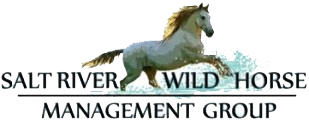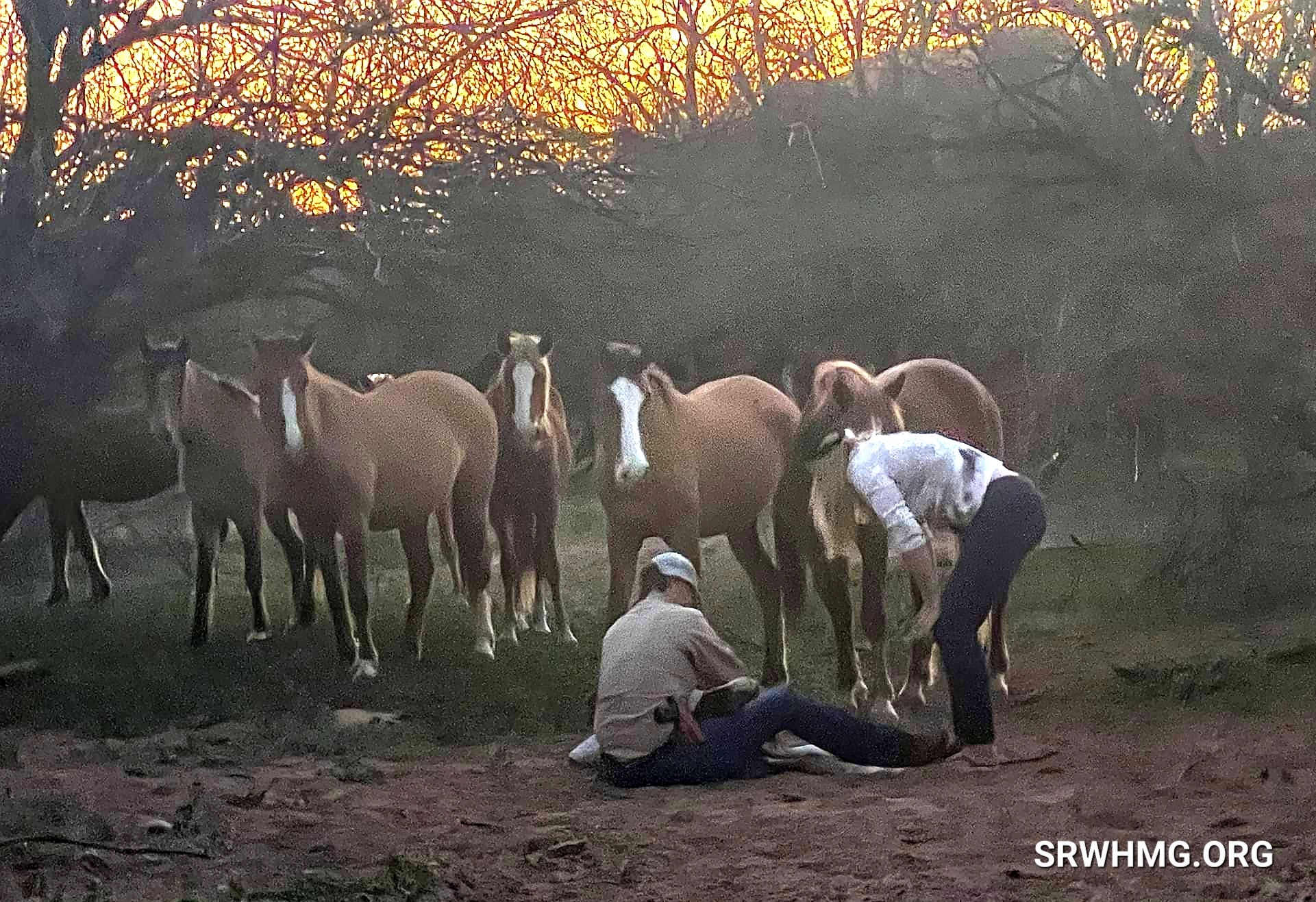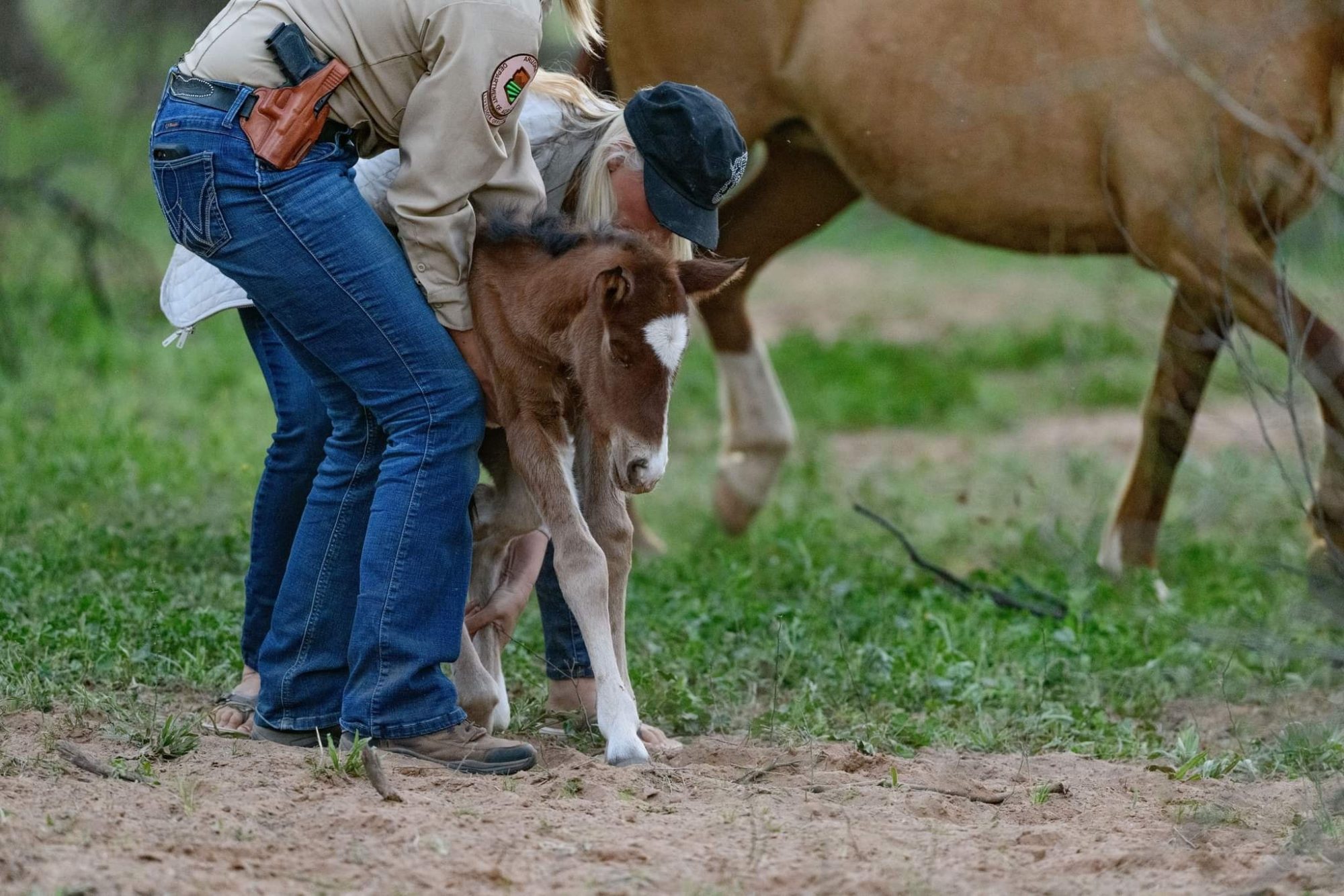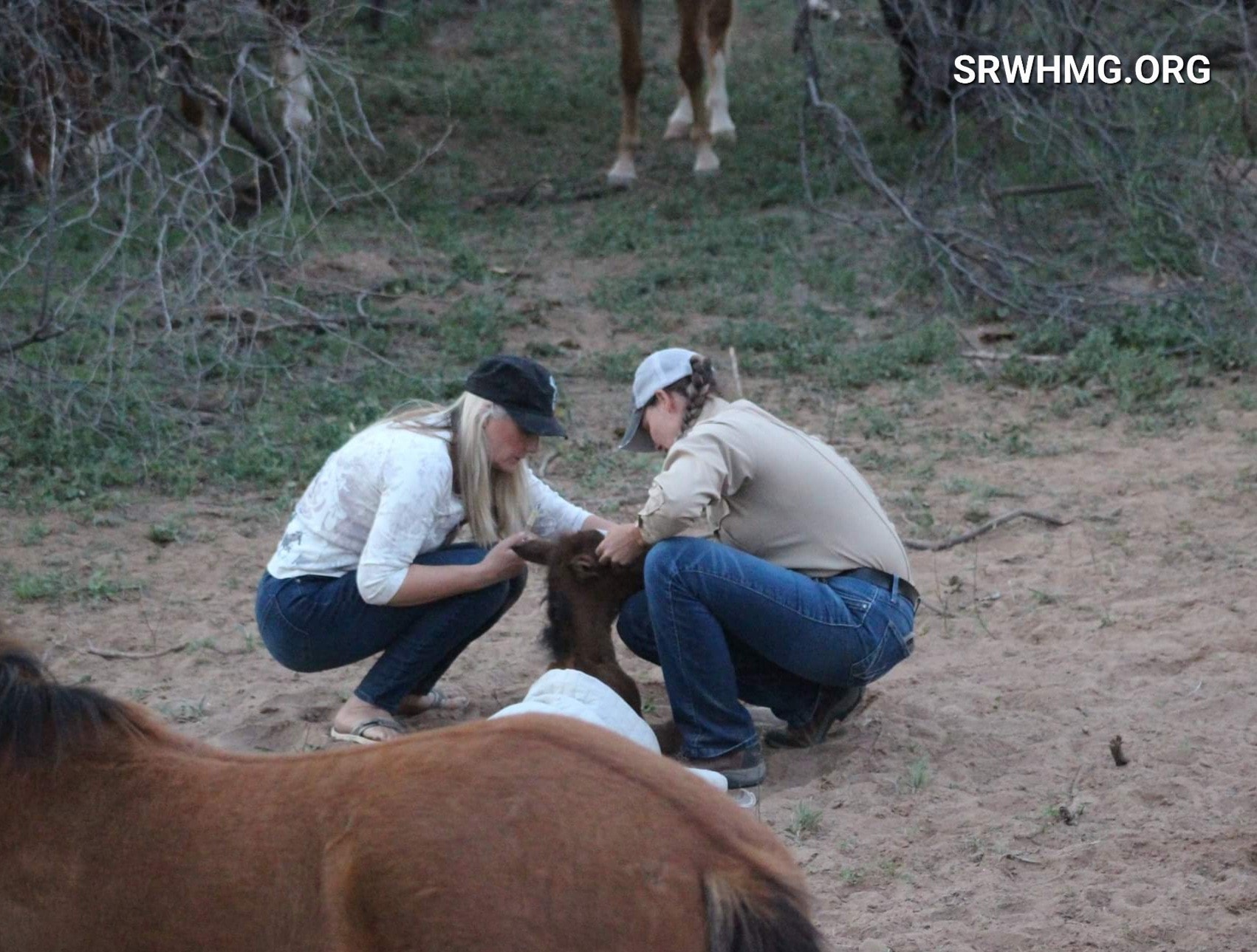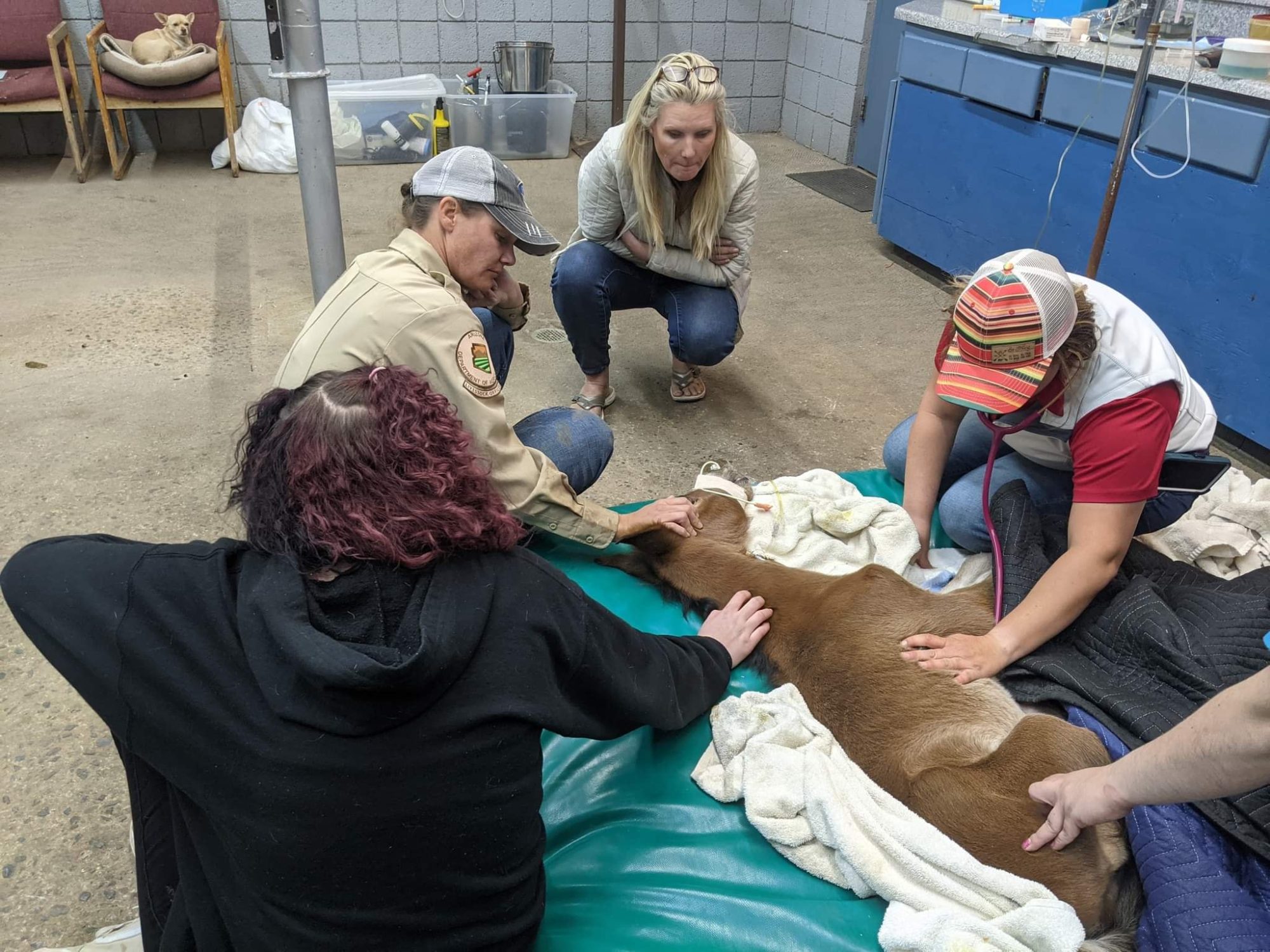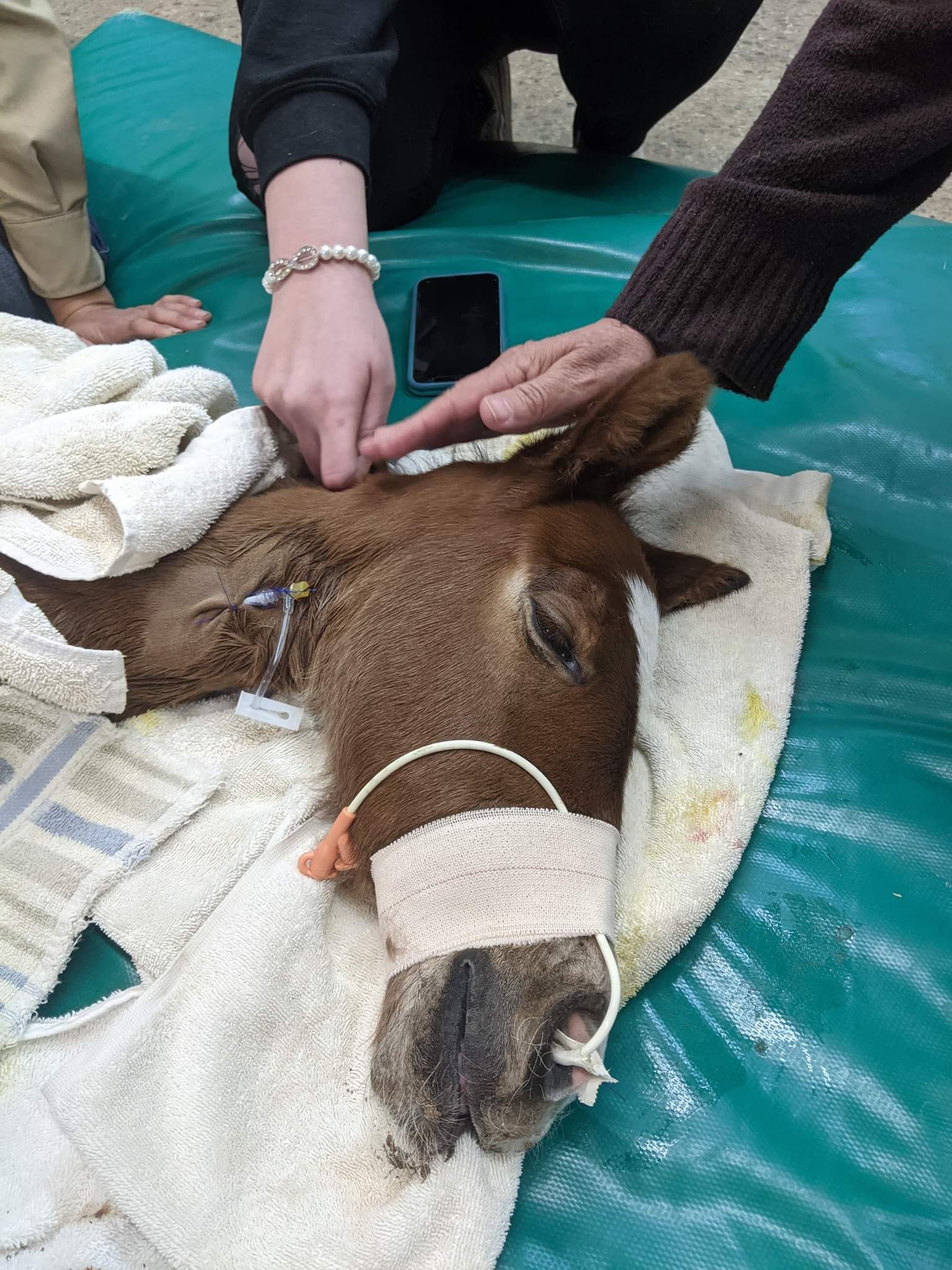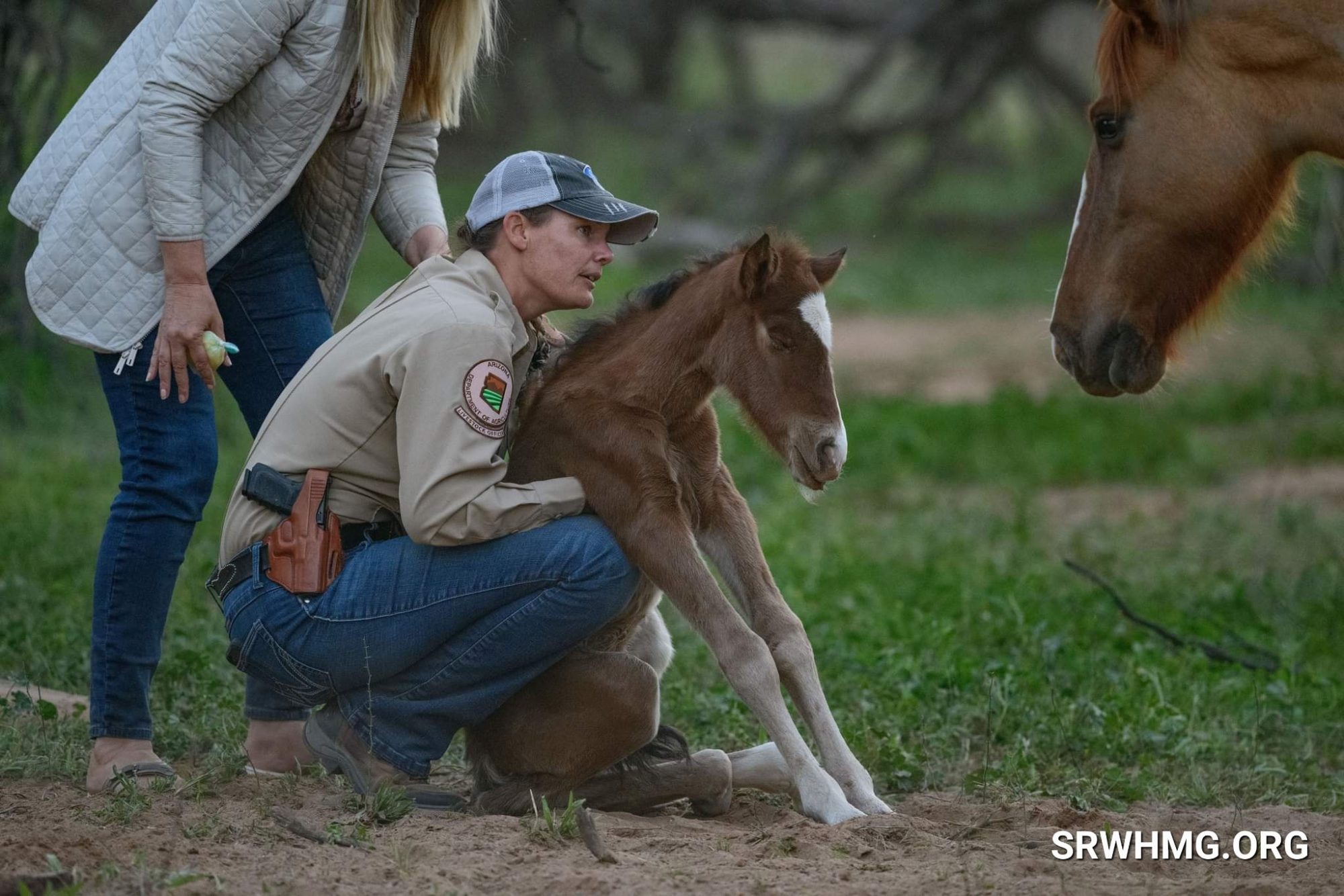
Hotline: There is a foal in the forest that’s not doing well.
March 9th
Our hotline rings to tell us there is a foal in the forest that’s not doing well. (Thank you to caller Mike Turner) Our field team arrives to the Forest within 15 min and hikes to the described location deep in the forest. The situation is assessed as “not good” and Simone our president and officer Makenzie with AZDA arrive there 10 minutes later.
The newborn’s band is all around her. She is a good size foal, so not premature. Her mare is a 2018 filly named Mallory, a maiden mare. The band is very protective but lets us do what we need to, which is always just amazing how they seem to know we are there to help. Because mom is right there, it is of most importance for the foal to get up to try to nurse. Makenzie and Simone lift up the foal to assist her in standing up, and mom and aunt are very interested, but unfortunately the foal is too weak already and cannot support herself.
It appears to us that the foal never received the colostrum that is so important for foals in their first hours. So we warm up the colostrum we’ve saved in the freezer for just this occasion. After warming it up, we give her 4 syringes full, which she shallows. We know that this colostrum can do miracles IF the foal is less than 8 hrs old. (After they are 8 hours old it is harder for them to absorb.)
We warm the foal up as best we can and Simone gives her, her jacket. Unfortunately there is no significant improvement and after a while, the lead stallion comes to sniff the foal and then decides it is time for the band to move on. He pushes the protective mares away from us and they dissapear towards the river.
She has too much life left in her to just leave her there to die, so we decide to make the one mile hike back to the our trucks carrying the weak but very heavy foal. Luckily some great bystanders helped with the carrying, thank you so much to Lance and Jennifer.
We rush her to our veteranarian, where we find out through her bloodwork that indeed she did not receive her colostrum at birth. Her hemoglobin, glucose and white blood cell counts are at extreme lows.
The prognosis is bleek, but now we are all in, so she gets a feeding tube, she gets a catheter with plasma and hydration, which gives us a little hope that we can make her feel better. We all watch patiently as the doctor and assistants work hard on trying to save her.
We discuss the Deja Vu’s we are having in that room, because we have been there many times before. Over the course of the last 9 years, a little more than half of the foals we brought in have made it, and now live happily ever after in a family band structure at our rescue facility. But the other half have not. We know that even when you give it your all, we cannot save them all.
This precious little one unfortunately passed away, while we were watching. We are sad, but we are comforted by the fact that at least everyone tried their very best for her. We named her Amora, which means love. May she have felt the love from her band and the love and effort from all of us, and may she run forever free. ❤️ SRWHMG.
Photos proprietary property of SRWHMG, taken by Destini Rhone and Rick Blandford.
Background
We are not sorry that we spent a considerable amount of money on her. Our Jade Legacy fund provides for cases like this and we want to thank our donors who have contributed to this fund. Because we need to replenish it for a next time, we appreciate anyone who wants to contribute.
And this is our PayPal: SaltRiverHerd@respect4horses.com
We understand that some people feel that wild is wild and we should have left her. However, we want you to consider that that is very easy to say from behind a computer and not very easy to do when you are right there looking at a little life that is struggling. To us, the word “wild” does not mean; ” just let them suffer”.
In the wild it is very normal to have a 30% to 35% mortality rate of foals in their first year. This percentage has stayed remarkably consistent year after year, long before the fertility control program started and fairly consistent after. Last year, out of the 3 foals that were born, 2 survived, which is exactly that same survival rate.
There will also be some that would like to account this death to the fertility control program (PZP). Our veteranarian however assured us that this would have been a healthy foal if she had received the important colostrum from her mother in time. She was a good size, and overall there was nothing wrong with her.
The reason for her not receiving the colostrum could be because her mother was inexperienced and may not have let her nurse, or did not know how. We see most newborn deaths with maiden mares, which is the same in the domestic horse world.
Lastly it is interesting to note this mares PZP log. We of course did not mean for her to have a foal. In a pzp program there will always be some mares that the team cannot find, or that the team is a little late on. However, when counting back 11 months, Mallory was not one of those. She actually became pregnant 9 months after she received her booster. This means that her initial primer and booster were effective, and she did not become pregnant, but her second booster held only for 9 months. This second booster usually will last 10 months to a year. So she was a very fertile mare, which is going to happen, and we have counted on such instances in our program.
We currently do not see any other pregnant mares, but we hope to have at least one or two healthy foals this year out of a few mares that we were late on.
Lastly we want to thank our volunteers for their strength and endurance, and our president Simone for making good decisions under any circumstance. We want to thank our AZDA liaison, officer Makenzie, for trying so hard to get her up, and working right alongside us. We want to thank the public for knowing how to call our hotline (480 868 9301) and we want to thank the bystanders that helped us carry her.
And as always we want to thank you our supporters for standing by us and living these days of our lives with us.
It can get tough sometimes out there in the woods, as well as out here in the virtual social media Forest. While we are sad that Amora didnt make it, knowing that we did all we could, gives us comfort.
Sincerely, SRWHMG.
